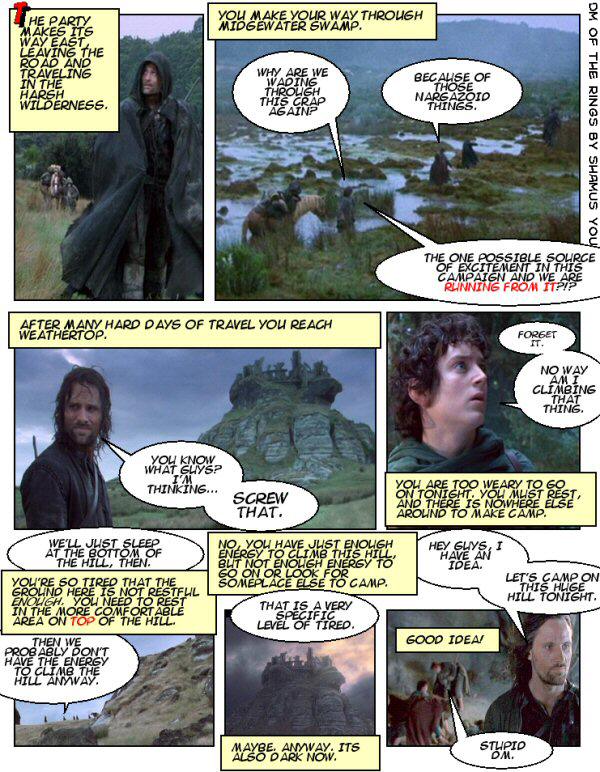Starfox
Hero
In general I support and like all your ideas here. But here comes an anecdote of the opposite.One question I have for the group is: What are people's thought on the interaction between buying into a premise and railroading/illusionism?
A: If I start a one-shot with the premise "you are all adventurers sworn to protect the Duke", and the players accept the premise, then is it railroading to expect them to protect the Duke? Specifically if I start a scene with "You meet the next morning with the captain to discuss how to protect the Duke from the assassination", would you consider that railroading?
In a Vampire game where you are supposed to play elders (there was a book for this in Vampire ed 2 whose name I now forget) we played a group of vampires specifically created to fight a specific threat. I was playing a Toreador, and in what I feel is typical Toreador fashion, conscientiousness was my weakest trait - my character was basically a telepathic voyeur that wanted to use telepathy to experience the creative process in humans. I read the plot as something we were supposed to fight, and our creators as naughty words that handed of a burden they could much better have handled themselves on to us out of cowardice and laziness. As role models, they encouraged me to be cowardly and lazy. Basically like when Calvin of Calvin and Hobbs clones himself, and the clone also refuses to do the homework and creates another clone to do it. So, when my character was expected to accept some danger in order to further the plot, she refused. The campaign promptly crashed and crashed hard, even to the point of breaking friendships.
The problem as I see it now was a lack of communication. The GM never told us we were supposed to take this plot seriously, and I never told the GM how my character viewed our creators and the plot. If you set up a game with a premise, you have to communicate that this is a true premise and not just a background for a sandbox.



